Tealive’s new brand refresh shows that Bryan Loo’s vision for it goes beyond just bubble tea
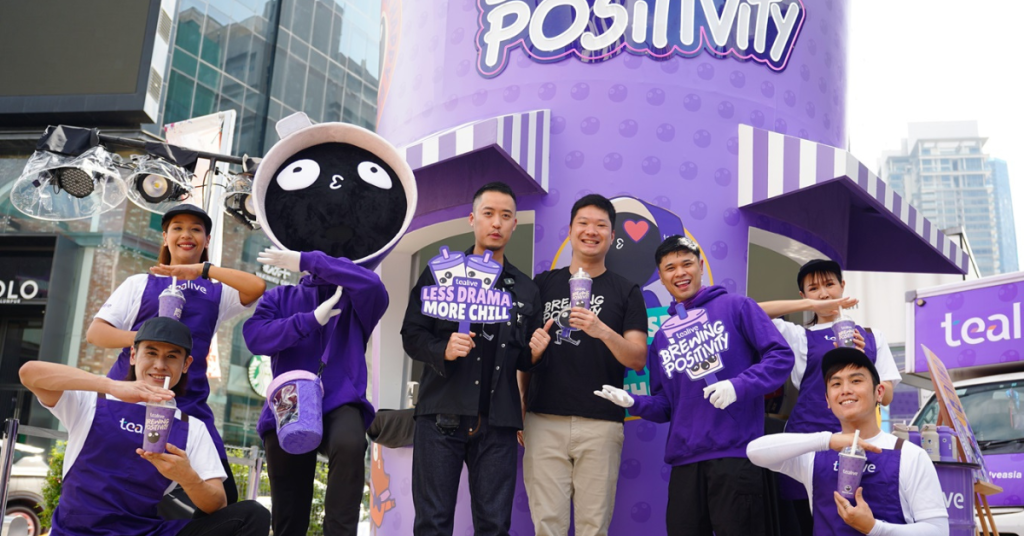
[Written in partnership with Tealive, but the editorial team had full control over the content.]
Bright and early on Friday (May 3), we were invited by Tealive to Lot 10’s Premier Terrace at Bukit Bintang for a milestone event. Located just outside the MRT station’s doorway, you could hear the event before seeing it.
Playing repeatedly on the speakers was the brand’s new song which featured a catchy tune about how “Life feels better with positivity”. This captured the essence of the day’s event perfectly.

Past the archway welcoming visitors to the “Bru-niverse” (opened only on April 30 to May 5, 2024) was a mini carnival of sorts that hosted an array of activities.
This included a human-sized hamster wheel called Run Around The Bru-niverse, a photo booth spot to “Snap a Bru-file”, and a bubble tea shaped “Yumbler” station to get limited edition Tealive tumblers.
At each of these activities, you’d find Tealive’s new tagline “Brewing Positivity” highlighted in one corner or the other. None were more obvious than the giant Tealive cup beside the truck serving its new “Peach Paradise” menu.
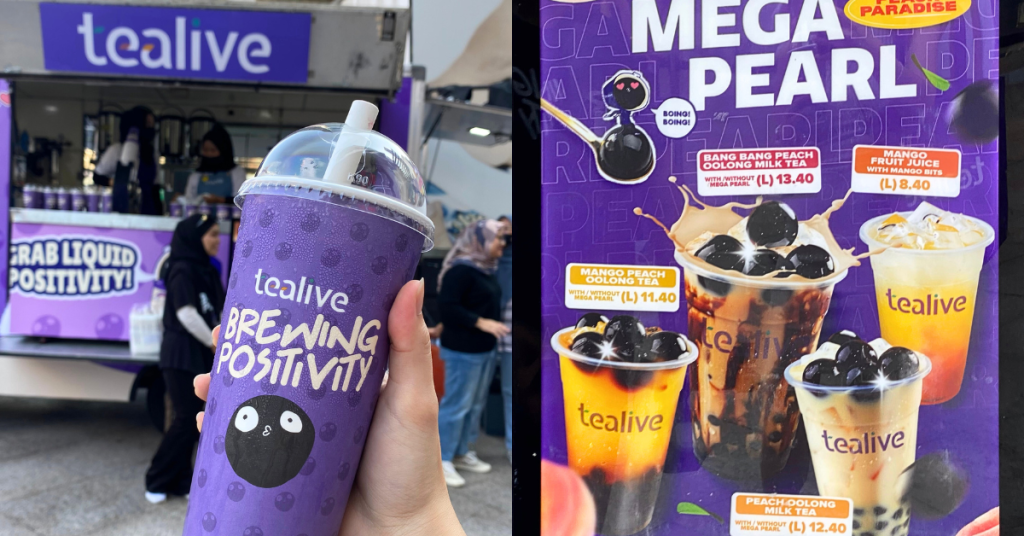
Alone, these elements might seem out of place, but together, they’re part of Tealive’s brand refresh that has been months in the making.
Speaking more on this, Loob Holdings’ CEO, Bryan Loo shared that this is part of their goals in being more than just a leading lifestyle tea brand in Southeast Asia.
“While we continue to make great strides these last seven years, we want to strengthen our customer’s attachment to the brand. So, we took a moment to ask ourselves who we really want to be and why we exist as an organisation,” Bryan stated.
The answer to this is exactly what the new tagline suggests: To embody and promote a culture of positivity. “‘Brewing Positivity’ is not so much about brewing our drinks as that’s our core by default, but what we want to do as a brand, [which] is to be purposeful and a champion for good,” he clarified.
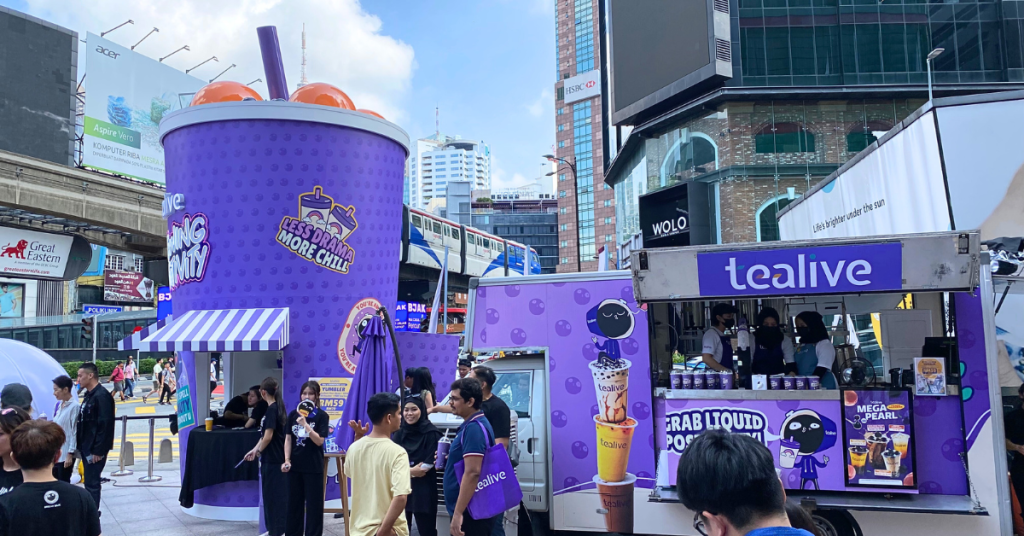
Taking a step forward with a focus on ESG
In an exclusive interview with Vulcan Post, Bryan explained, “Positivity, to us, isn’t just a feel-good notion. It’s a powerful force that can uplift individuals and communities, fostering resilience and hope.”
In essence, they’re not just all talk, no action.
Moving forward, Tealive will have a series of brand awareness roadshows that double as charity drives, particularly in regions prone to natural disasters. An example he shared was the Philippines that’s highly susceptible to natural hazards, such as tropical cyclones, earthquakes, and volcanic risks.
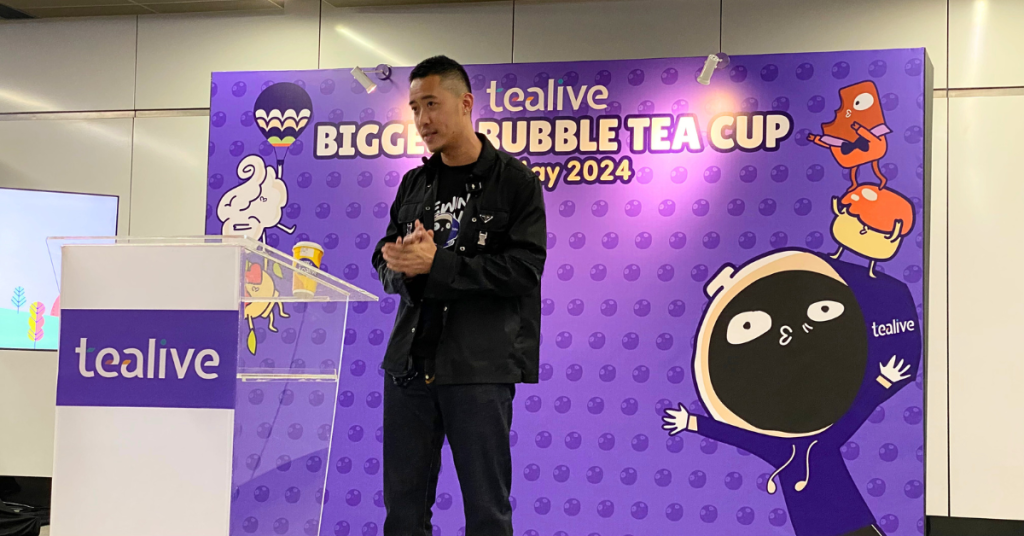
Having expanded into that region in 2022, Bryan finds that they have a responsibility to be at the forefront to help local communities. This applies to other countries that the brand has a footprint in, like Vietnam, Myanmar, and Cambodia.
“By doing so, hopefully one day we can be remembered as a brand for good,” Bryan expressed. It’s also in this spirit that he announced Tealive’s shift to focusing on sustainability.
As part of the brand refresh, it aims to be the first company in Malaysia to provide a full line-up of eco-friendly paperwares.
He admitted that it’s a challenge, particularly since customers enjoy the aesthetics of their drinks presented in plastic cups.
However, they’re willing to compromise on the look and feel of the drinks for a better planet. Klang Valley customers will probably have seen these paper cups in stores already in the last few months.
Tealive had previously swapped plastic straws for paper straws and was one of the first large F&B chains to do so at the time. This was a measure in response to the issues that an increase in single-use plastic caused during the bubble tea hype in 2019.
Tealive’s sustainability shift can also be seen upstream where Loob Holdings’ boba plant is set to support the Malaysian economy by partnering with local tapioca farms. Doing this decreases Tealive’s carbon emissions through decreased transport and travel.

Looking on a broader scale, Loob Holdings is set to continue its global expansion for both Tealive and Bask Bear (Tealive’s sister brand). Each year, the focus will be on growing in three new regional markets, where one out of the three markets will be in Southeast Asia. This will be owned by the holding company.
The brand plans to expand into our neighbouring Indonesia soon. If they’re able to open their 100th Philippines outlet by Q3 2024, then this will take place by the year’s end.
With a footprint in eight countries outside of Malaysia, the seven-year-old brand believes that now is the right time to revitalise its identity.
Tealive has proven itself to be a mainstay in the beverage scene, and that’s likely because the brand knows that to grow means to embrace change in order to stay relevant with the times.
Currently, the global business landscape seems to be heavily emphasising ESG (environmental, social, governance) practices.
Tealive’s new brand refresh follows this shift, and sets an example for others to follow suit.
Also Read: How financial institutions & universities are reshaping their network through AI-native solutions
Featured Image Credit: Tealive
This M’sian actor started a dumpling brand with unique flavours like bak kut teh & pad krapao
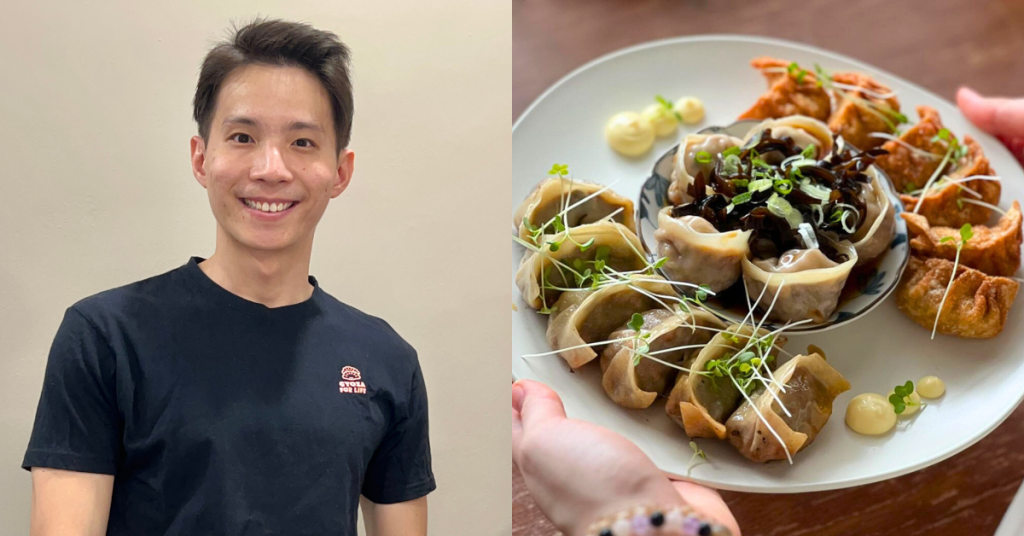
“At that time, I could feel my acting career building loads of momentum. [I was] signing with the biggest talent agency in Toronto, Canada, [after making my film debut alongside Sigourney Weaver in The Good House],” Adrian Choong, the founder of Gyoza For Life, shared.
“And then COVID-19 happened.”
Everything in the entertainment industry halted. Having built a career in theatre acting for five years by then, Adrian was still hopeful of things turning around. His career was just growing, surely it’s only up from here, right?
Then he got a call from his talent agent informing him that they were going to resign. Add that heartbreak to the pandemic jitters and you’ll understand why he had to fly back home.
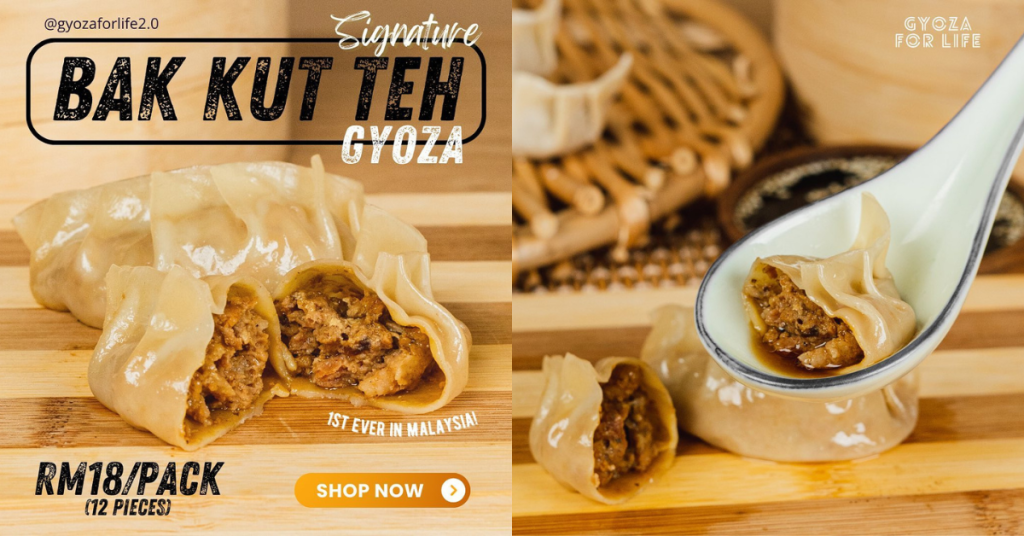
But he never expected this trip to lead to a career pivot into dumpling-making, especially not one offering novel flavours like Bak Kut Teh and Sawadee Kra Pao.
The beginning of a new chapter
Shortly after returning home, Adrian’s cousin texted him with a pitch—help sell gyozas for a commission. Times were tough and his cousin was suffering from pay cuts at the restaurant he worked at. The side hustle was his means of gaining extra income.
Adrian figured, “Why not?” It would be a good way to spend time with family, earn some wages, and develop a new skill. F&B being an essential service during lockdowns also made it an easy choice.
So the two banded together and got the wheels turning.
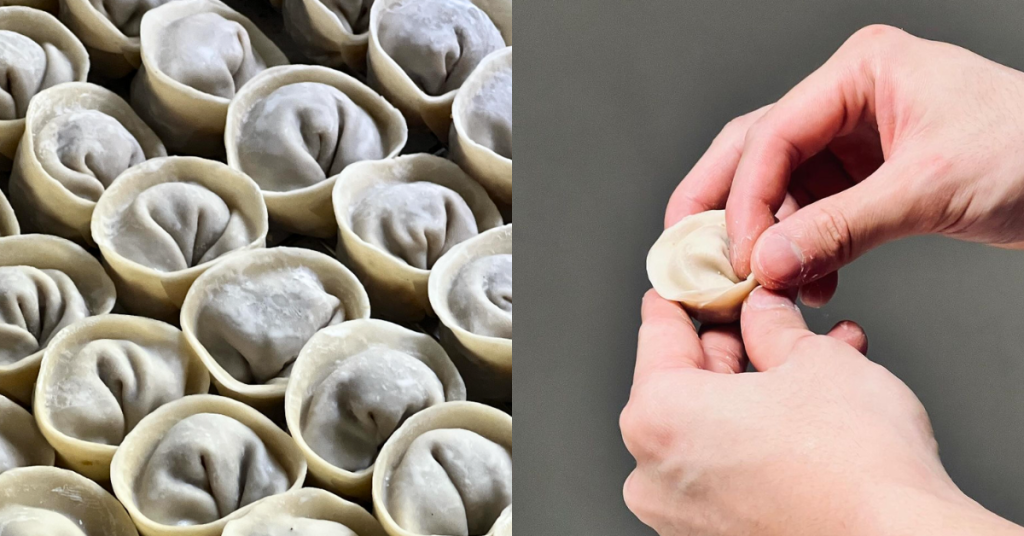
Initially, his cousin was the person behind the gyozas while Adrian helped in marketing and order deliveries. The tasks brought him a lot of joy as he enjoyed connecting with and meeting new people.
But eventually, the orders started piling up and exceeded his cousin’s solo capabilities, which encouraged Adrian to pick up the craft as well.
Looking back on it now, Adrian expressed his gratitude for the opportunity to learn at his own pace. When MCO 2.0 lifted, his cousin went back to working his day job which left Adrian with two choices—continue making dumplings, or start something else.
Flavours that aren’t too crazy
As a pandemic baby, Gyoza For Life laid its roots at home using just the freezer section of Adrian’s refrigerator.
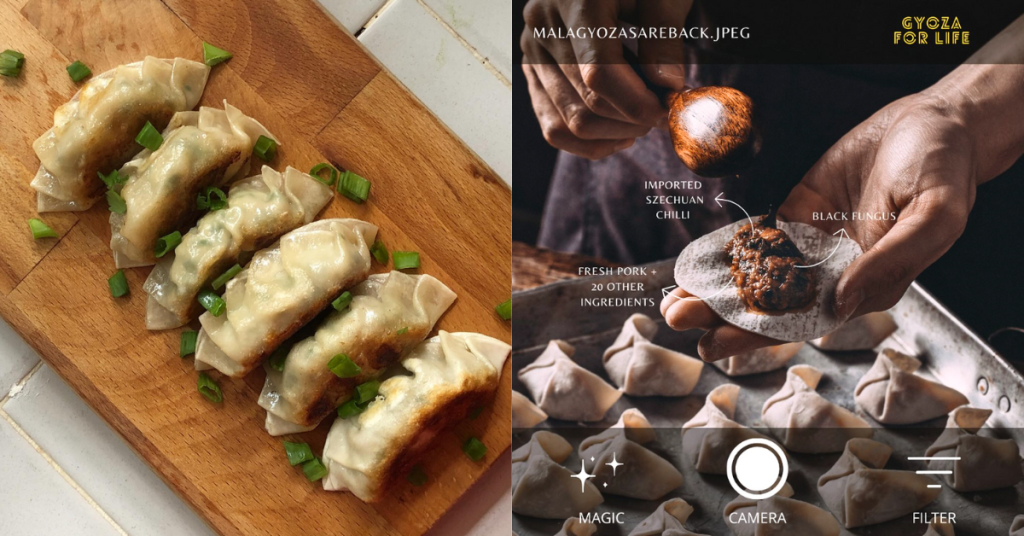
You’d think it would be easy since he already acquired the necessary skillset. However, the dumpling market is quite saturated with a number of established brands available in grocery stores.
This left Adrian a little stumped on how to stand out, specifically in terms of sprucing up something traditional with a creative spin. While unique, the flavours shouldn’t be too weird either, as they should appeal to the general public too.
He started listing all the foods he loved and narrowed them down to what most Malaysians loved too. This gave him the idea to create Gyoza For Life’s first two out-of-the-box flavours—Japanese Curry and Bak Kut Teh.
“It’s never been done before so definitely we were a little nervous. But we kept pushing through and helped our audiences to think out of the box when it comes to gyozas or dumplings,” Adrian shared.
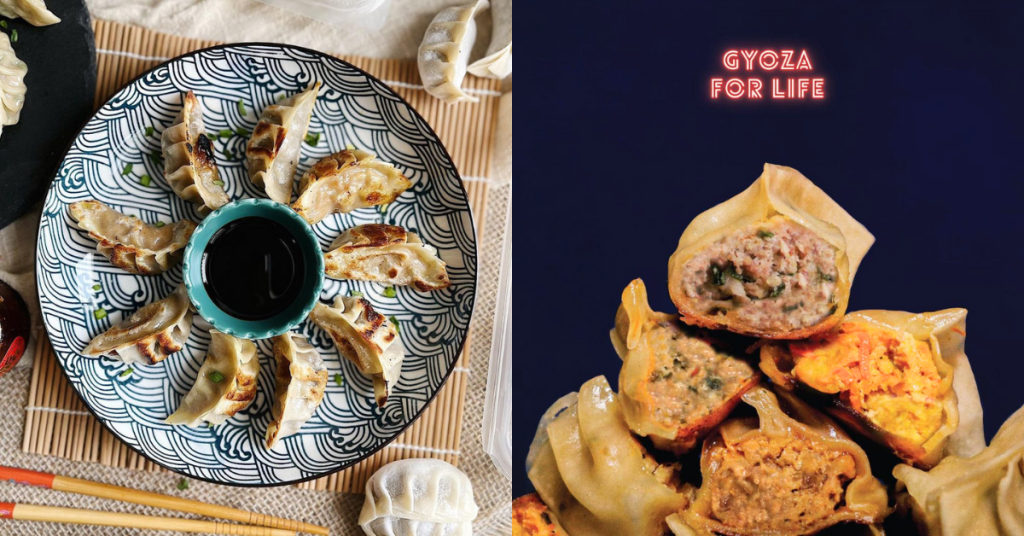
From there, he tried different vegetable pairings to ensure they combined well with the selected flavours and chosen meat. The testers were sent to his family and previous regular customers for feedback.
“The reception was astounding and the feedback we got inspired us to create Sawadee Kra Pao.” This continues to be his bestseller to this day and has landed them an appearance on 8TV’s Chinese food series called Ho Chak!.
Making “pouches of happiness”
Almost three years into the business, Gyoza For Life’s dumplings are still handmade by Adrian and a group of part-timers. The team is able to make between 10kg to 20kg of gyozas on an average weekly basis. Prices start from RM18 for a box, where each comes with 12 pieces of dumplings.
Based on his calculations, Adrian shared that the total dumplings they’ve sold come up to about 200,000 pouches.
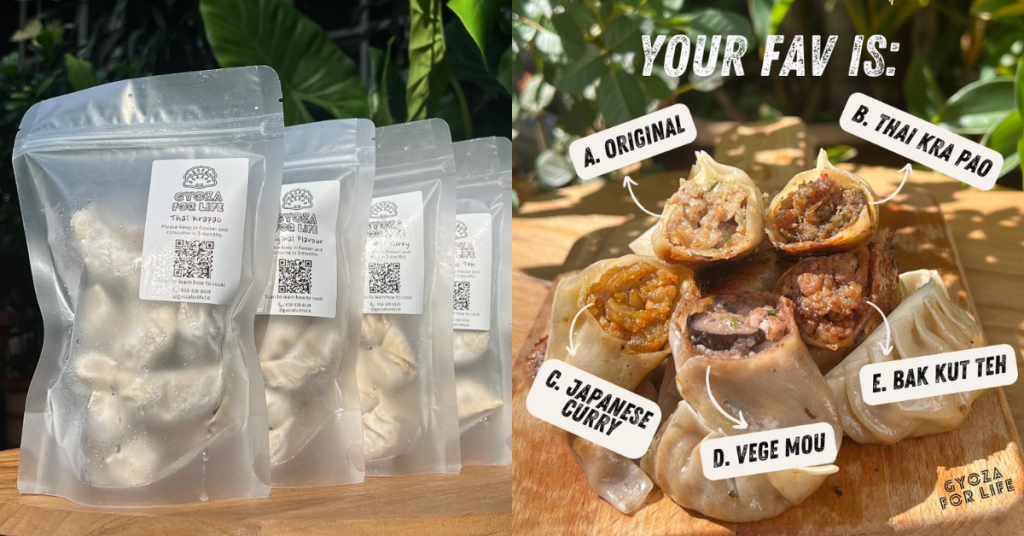
It’s quite a feat considering the manpower at hand and the fact that it operated from home during the pandemic. Not to mention the fact that dumpling-making itself is labour-intensive. Hours are needed to marinate the meat before wrapping it in dumpling skin.
It would be easier and more time-efficient to introduce automation into the brand’s production line. This would also help Gyoza For Life scale up quickly.
Nevertheless, the brand still sees value in hand wrapping each flavourful pouch as it allows them to better control the quality. “Until we find one that can give us quality and works best for us, I think automation is a road to cross in the coming years,” Adrian elaborated.
At the moment, customers can order their dumplings that are sold frozen through their Oddle page. Adrian recommends first-time buyers to get packs of their Original, Sawadee Kra Pao, and Mala Gyoza to get a good range of flavours and spice levels.
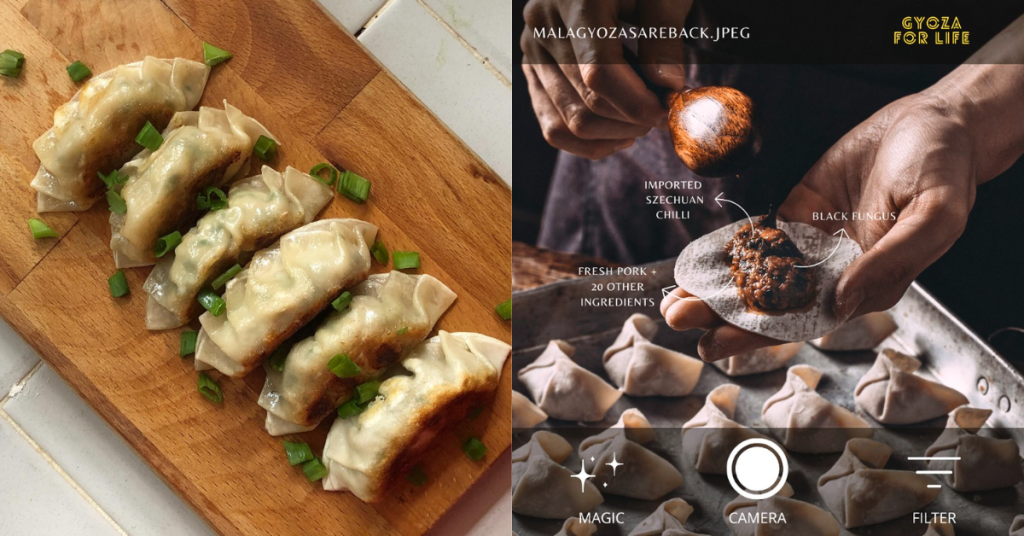
Bigger and bolder growth plans
Besides the plan to use automation in the future, the team is actually striving for another short-term goal. That’s to take the gyozas out of the kitchen and onto the plate of diners.
To achieve this, the brand has worked with other F&B businesses for pop-up collaborations. Its most recent one was with Many Aprons where they served Gyoza For Life’s dumplings fresh off the stove.
There will be an upcoming one in June in partnership with Brella Bakehouse in PJ. There, Adrian teased that customers will get to try their three new gyoza flavours.
This is part of their approach to increase offline brand visibility and allow new customers to taste them before purchasing. The hope is that it’ll be able to convert these diners to become new online customers too.
In the bigger picture, this is a segue into growing the brand further by opening up a restaurant alongside the frozen dumpling business. He admitted that there’s still a way to go, but they’re working on supplying restaurants and increasing manpower soon.
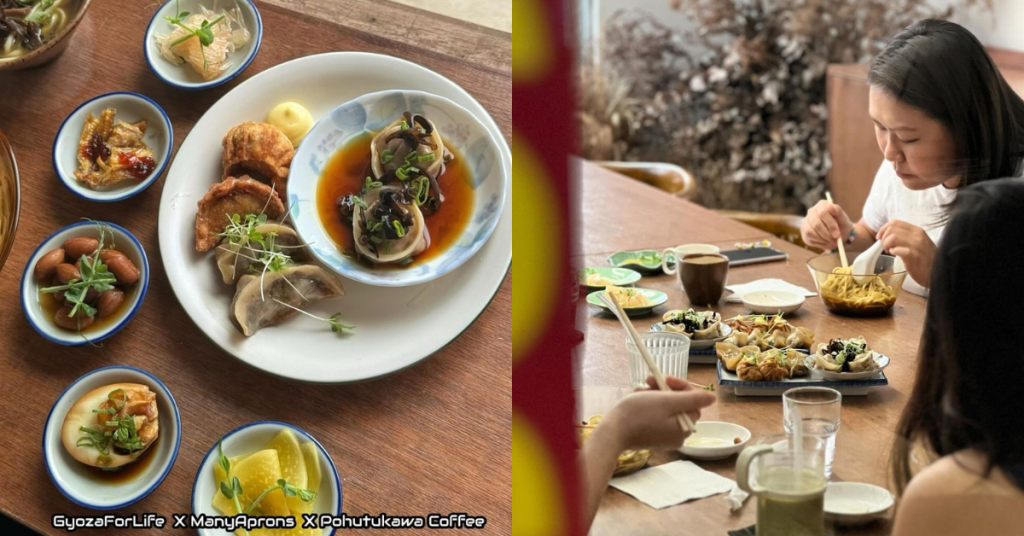
“We are still small but eager to grow!” he summed up enthusiastically. As for his personal acting career, Adrian’s still active in the industry and was part of the recently released Rain Town film. That goes to show that you can juggle two passions at once if you’re ambitious enough.
- Learn more about Gyoza For Life here.
- Read other articles we’ve written about Malaysian startups here.
Also Read: How financial institutions & universities are reshaping their network through AI-native solutions
Featured Image Credit: Gyoza For Life
S’pore govt unveils AI-powered search engine to provide easier access to Parliament records

The Singapore government’s experimental development arm, Open Government Products (OGP), has launched Pair Search, an artificial intelligence (AI)-powered search engine that aims to give Singaporeans easier access to parliamentary records.
According to a news report by The Straits Times, the website is powered by a large language model (LLM)—the same technology behind the mainstream generative AI platform ChatGPT. It also lets its users sift through case judgements from the High Court and Court of Appeal.
Oh Chin Yang, a senior software engineer at OGP, shared that early test results on their prototype search engine have been “encouraging”.
He added that the concept of Pair Search was conceived at OGP’s annual hackathon, with the team wanting to leverage the advancements in natural language processing and information retrieval to create a more effective search tool for both public officers and citizens.
“The best public policy decision and debate is an informed one, and that starts with search,” he told The Straits Times.
Since its soft launch at the start of 2024, 84 per cent of all users who clicked on at least one search result found their searches within the first 10 results shown to them.
As of April, the site had about 2,700 users and 8,300 search queries.
Pair Search is an upgrade from the current “difficult and unintuitive” search engine
Searching for parliamentary records online was once considered a costly and arduous endeavour.
In 1996, the Singapore government introduced LawNet – a legal research portal that gives its users access to Parliament sitting reports. However, access came with a price as users had to register an account with the portal and pay a S$8 fee monthly.
This changed when the government introduced Hansard, which provided free online access to Parliamentary debates in 2000. However, it was limited to reports from the current term of Parliament, and the cost to access older records had risen to S$30 per hour.
The introduction of Pair Search is touted as an upgrade from the platform, which is “difficult and unintuitive” to use, according to the Pair Search team on the OGP hackathon’s website.
As the search engine is fully keyword-based, House debates that frequently mentioned a single word in the query were often ranked higher than more relevant results.
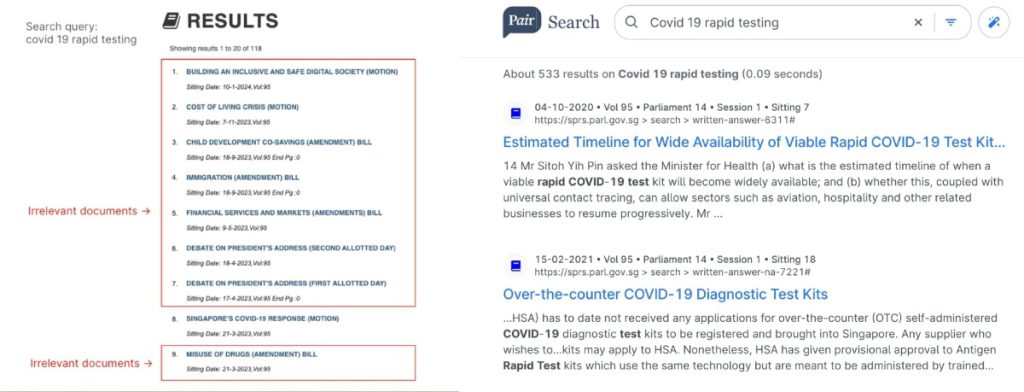
For instance, the team found that searching for “Covid-19 rapid testing” using the Hansard search engine produced eight irrelevant documents as the top result.
On the other hand, all of the top 10 results generated by Pair Search were relevant to the query.
According to the team, Pair Search uses a combination of advanced keyword matching and contextual search that aligns with the user’s intent. Simply put, the user can receive relevant results without any matching keywords.
Like any modern search engine, the new tool also gives users snippets of each result. In addition to being sorted chronologically, search results can also be sorted by relevance.
Pair Search has incurred an infrastructure cost of less than S$2.7K since its inception
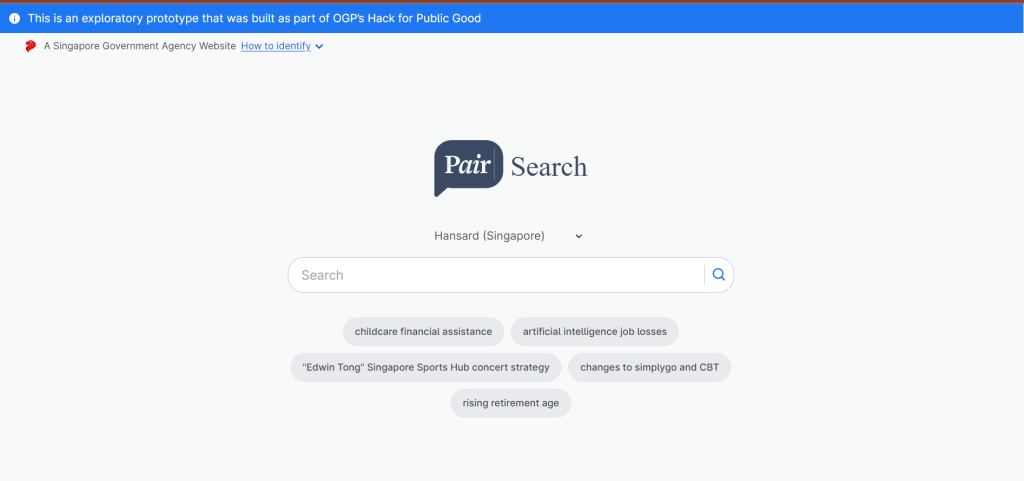
As the Pair Search platform is still at its prototyping stage, continuous improvements have been made since its initial introduction. The search algorithm was last enhanced on April 24 to better understand parliamentary debates at both the paragraph and report level, the latter typically covering a full day’s sitting.
While it meant that reports that may not be relevant as a whole, those with sections that are highly relevant to the search query, will be ranked more highly, resulting in better search results.
Oh added that the infrastructure cost incurred since Pair Search’s inception at the beginning of 2024 has been less than US$2,000 (S$2,700) a month. The Pair Search team comprises one engineer, supported by a designer, and a product manager from the broader Pair team.
Moving forward, the Pair Search team aims to transform the basic search engine into a more robust research tool and is looking to make further enhancements. This includes the possibility of the site proactively suggesting content based on users’ search behaviour.
Furthermore, the team is developing additional features, such as a summarisation function that utilises AI to extract key information into a concise explanatory paragraph based on the search terms used.
The Parliament spokeswoman has also responded to queries on plans to merge the two search platforms, run them simultaneously, or sunset the older one, stating that it has not been decided, given that Pair Search is still a prototype. “Future plans will be subject to developments in the IT landscape,” she said.
Pair Search is part of the public service’s AI software suite
Apart from Pair Search, the Pair team is also currently working on several other related LLM-based projects for public officers, which include:
- Pair Chat – a secure version of ChatGPT
- Pair Intern – an e-mail-based LLM assistant
- Pair Noms – an automated meeting minutes generator
As of now, only Pair Search is available to the wider public.
The launch of AI-powered projects aligns with the Singapore Government’s aim of becoming “a leader in the field of AI” and using the technology “for the public good.”
Most notably, DPM Lawrence Wong announced the National AI Strategy (NAIS) 2.0 in December last year to spur the city-state’s efforts in integrating AI.
GovTech has also noted that by leveraging on AI, it can propel the public sector to “keep up with the times” and “remain world-class.”, in preparation for a future where AI is a “fundamental skill.”
Featured Image Credit: Parliament of Singapore
Also Read: DPM Wong unveils National AI Strategy 2.0 – outlines 15 key steps to be world’s leader in AI
S’poreans can soon use PayNow, GrabPay to make payments in Japan
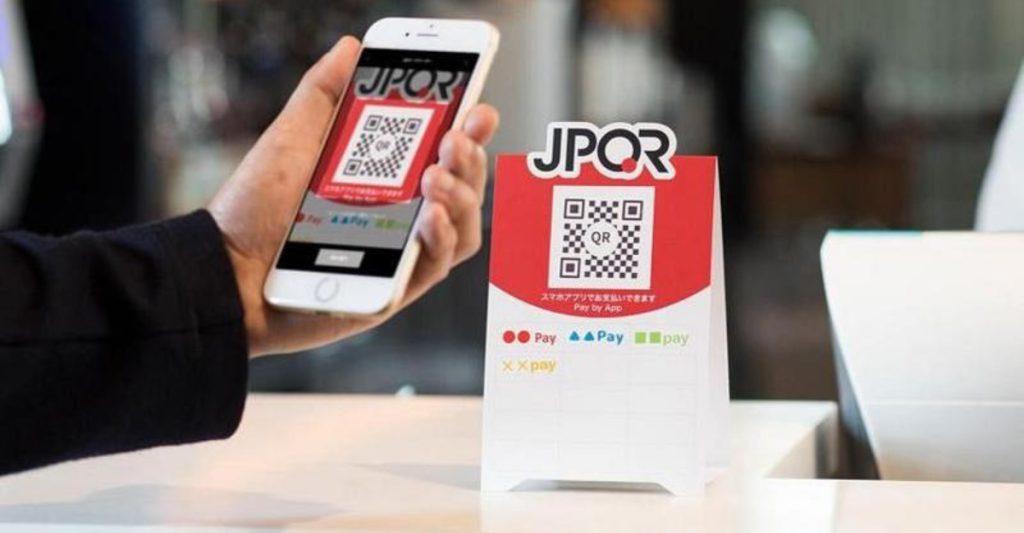
Tourists from Singapore and several other Asian countries will soon be able to pay for their purchases in Japan using their local QR code wallets.
Under a new joint payment programme, eight participating countries will be able to scan Japan QR (JPQR) codes to make payments, the Straits Times reports.
Likewise, Japanese travellers can also use QR payments in these participating countries, which include Malaysia, Indonesia, the Philippines, Thailand, Cambodia, Vietnam, and India.
Japan aims for the scheme to take effect in time for the Osaka World Expo, which begins on April 13, 2025. The country is currently working to ensure that its JPQR payment system is compatible with the unified standards of the eight other countries.
Japan is lagging behind Asean countries in the usage of cashless payments
With just 15,000 businesses in Japan currently using the JPQR service, the country faces a pressing challenge to boost QR code system adoption nationwide. Compounding the issue, the majority of the businesses that utilise this system are small enterprises, which typically receive fewer visits from tourists.
“The challenge is that not many Japanese businesses are on board, though we hope the potential use by foreign visitors will be a catalyst to convince them to adopt JPQR,” Kenichi Matsuguma, the director of the cashless payment promotion office at Japan’s Ministry of Economy, Trade and Industry, told the Straits Times.
He added that Japan is already behind ASEAN countries such as Singapore, Indonesia, Thailand, Malaysia and the Philippines, who, back in 2022, had signed a pact to unify their QR code payment systems.
In 2023, less than 40 per cent of all transactions in Japan were cashless—a figure that is significantly lower than neighbouring countries China and South Korea, which boasted 83 per cent and 93.6 per cent of all transactions being cashless respectively.
The use of QR payments also only makes up 8.6 per cent of all cashless payments in Japan.
However, the country aims for to achieve 40 per cent cashless transactions by 2025, and eventually, 80 per cent, though no target year has been set for the latter goal.
Featured Image Credit: Payments Japan Association
Also Read: S’poreans can now send money directly to Indian bank accounts with new PayNow-UPI linkage
After being retrenched, these M’sians started making yoghurt that’s now sold in 30+ locations
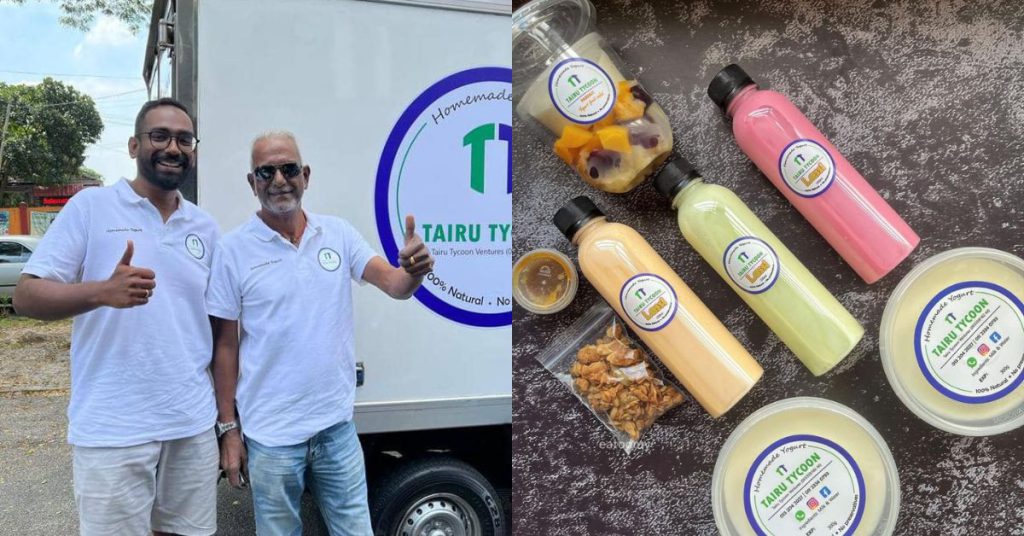
For those who are not familiar with Indian yoghurt also known as “tairu”, it’s renowned for its rich and creamy texture.
Throughout history, Indian yoghurt has been consumed in various forms and dishes, playing a versatile role in Indian cooking, from savoury curries and marinated meats to refreshing drinks and sweet desserts.
However, in Malaysia, Indian yoghurt isn’t readily available in regular grocery stores or supermarkets. It’s typically found only in Indian specialty stores.
Knowing that, Kiren Anand and his maternal uncle, Asokumar, founded Tairu Tycoon in 2021 after being retrenched during the COVID-19 pandemic to share the richness of Indian culture with Malaysians.
Tairu Tycoon is a yoghurt manufacturer and supplier based in Damansara Damai, Selangor.
Asokumar’s expertise in business development from his tenure in a multinational company provided them with the skills needed for their entrepreneurial journey.
Coming from a background as an airline pilot himself, Kiren told Vulcan Post, “While my direct business experience may have been limited, I had gained some exposure to business operations and management through various ventures and projects.”
From humble beginnings to thriving enterprise
What started as a home-based business has now blossomed into a full-fledged production unit with Tairu Tycoon’s dedication and commitment to growth.

With a team of four individuals, they have scaled up their production capacity to meet the growing demand for their products while maintaining the highest standards of quality and consistency.
At the beginning of their venture, they were only making 6kg of yoghurt per week and delivering to homes in the Klang Valley.
However, Tairu Tycoon has come a long way since its modest start in 2020.
Now, the company produces nearly 60kg of yoghurt daily and supplies to about 30 restaurants, cafes, and many grocery stores across the Klang Valley.
Some of their notable partnerships include supplying yoghurt and lassi to Ricksha KL, The British Raj, 51 Grocer, and BHK Freshmart and others.
“Working with such established brands has allowed us to showcase the quality and authenticity of our products to a broader audience, opening up new opportunities for expansion and market penetration,” said Kiren.
Expanding beyond traditional yoghurt offerings, the business now provides a variety of yoghurt-based products, including fruit parfaits and a diverse range of lassi flavours such as mango, strawberry, and more.
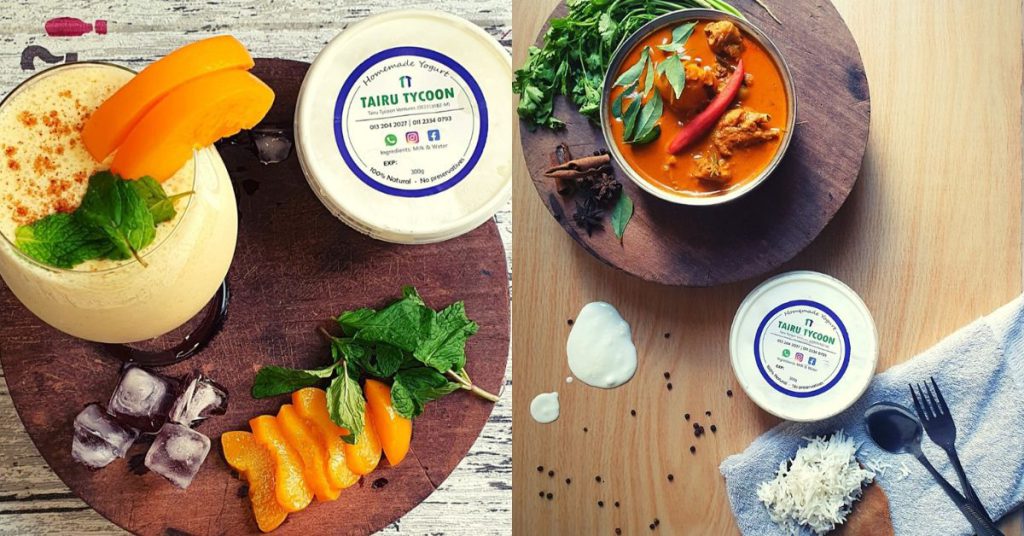
Keeping tairu traditional
Tairu Tycoon’s yoghurt is crafted using traditional Indian methods passed down through generations.
According Kiren, what distinguishes his brand of yoghurt from others is its superior quality, extended one-month shelf life, and the presence of live bacteria—which, according to him, is not actually present in most retail brands despite being advertised as such.
“Indian yoghurt has unfortunately garnered a bad reputation in Malaysia due to the prevalence of subpar quality curd in the market. Many offerings suffer from issues such as excessive sourness, watery consistency, and rapid spoilage, primarily stemming from less controlled fermentation processes.”
“We aim to address these concerns by offering a superior product that stays true to the essence of homemade tairu,” he said.
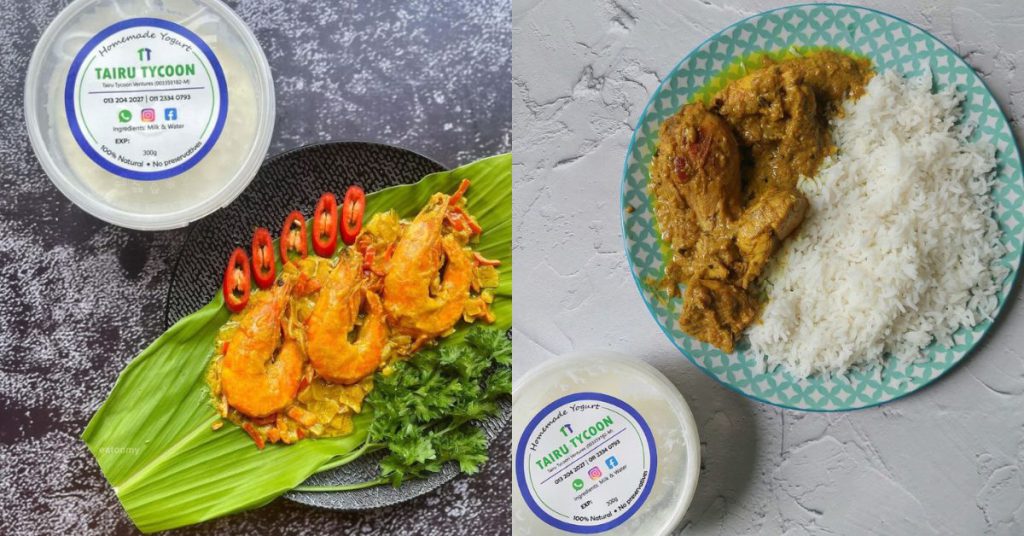
Also, by sourcing the finest quality cow milk from local dairy suppliers and employing unique fermentation methods, Tairu Tycoon ensures that each spoonful of yoghurt is packed with probiotics and nutrients, promoting gut health and overall well-being.
“By sourcing locally, we are not only supporting the local economy but also ensuring that our yoghurt is made from the freshest ingredients available,” Kiren added.
Navigating challenges with tenacity
The journey of building Tairu Tycoon has not been without its challenges.
One of the biggest challenges they faced was ensuring consistent quality and taste while scaling up their production to meet growing demand.
“Achieving this required careful planning, investment in equipment and facilities, but we also found innovative ways to keep the cost low without compromising quality” Kiren said.
Apart from that , financial challenges also posed hurdles along the way, particularly during the initial stages of setting up their production facilities and expanding their operations.
“We had to carefully manage our resources, seek financing options, and make strategic investments to ensure sustainable growth while maintaining profitability.”
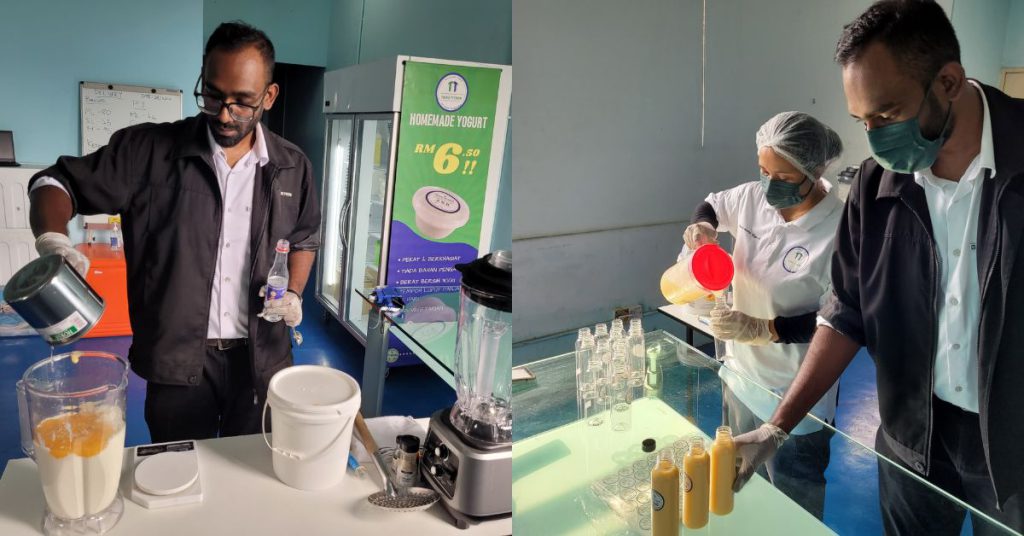
“Juggling a new business venture fresh out of retrenchment was a fearful but transformative time for me personally,” Kiren shared.
Despite the obstacles, their proactive and adaptable approach have propelled Tairu Tycoon to new heights of success.
“We invested in research and development to refine our production processes, optimise our recipes, and introduce new product offerings that catered to evolving consumer preferences.”
“We also focused on building strong relationships with our suppliers, partners, and customers, fostering a sense of trust and collaboration that helped us navigate challenges together,” said the founder.
A vision for the future
As Tairu Tycoon continues to grow and innovate, Kiren and Asokumar are focused on solidifying their position as a leading provider of high-quality Indian yoghurt in Malaysia and beyond.
With plans to expand their market beyond the Klang Valley and diversify their product offerings, they are poised to make a lasting impact in the yoghurt industry and beyond.
“Our goal is to become a household name synonymous with quality, authenticity, and innovation in the yoghurt industry,” he said.
They are also in the process of setting up a production unit in Seremban, marking their first expansion outside of the Klang Valley.
“This move will allow us to reach new customers and strengthen our presence in central Malaysia.”
“Additionally, we aim to establish a strong foothold in key cities and urban centers outside the Klang Valley, leveraging our existing network of suppliers, partners, and customers to penetrate new markets effectively,” Kiren shared.
- You can learn more about their business here.
- Read other articles we’ve written about Malaysian startups here.
Also Read: How financial institutions & universities are reshaping their network through AI-native solutions
Featured Image Credit: Tairu Tycoon
Why we’re flying to Macao for this 4-day global tech event in May & why you should too

Portuguese egg tarts, we’re coming for you.
The last time Macao was brought to our attention, it was at The Macao Showcase in Singapore where we had a teaser of the region, and we were mightily impressed by what it has accomplished.
Although famous worldwide as being an entertainment hub, Macao’s business prowess is not to be underestimated either.
Exemplifying this is the annual BEYOND Expo event that takes place in Macao, bringing together thousands of innovators, investors, media, and other stakeholders from across the world.
For 2024, it will be taking place from May 22 to May 25, and Vulcan Post will be flying over 2,000km to Macao to witness it.
Here’s why you should, too.
1. We’re not kidding when we say there will be an exciting lineup of programmes and events.
If The Macao Showcase was of any indication as to how amazing Macao’s events are, we’re ready to be blown away by BEYOND Expo’s promising lineup of events.
First up, there will be summits on extremely relevant topics such as healthcare, climate tech, and consumer tech. They seek to uncover the lucrative opportunities that innovative stakeholders can tap into.
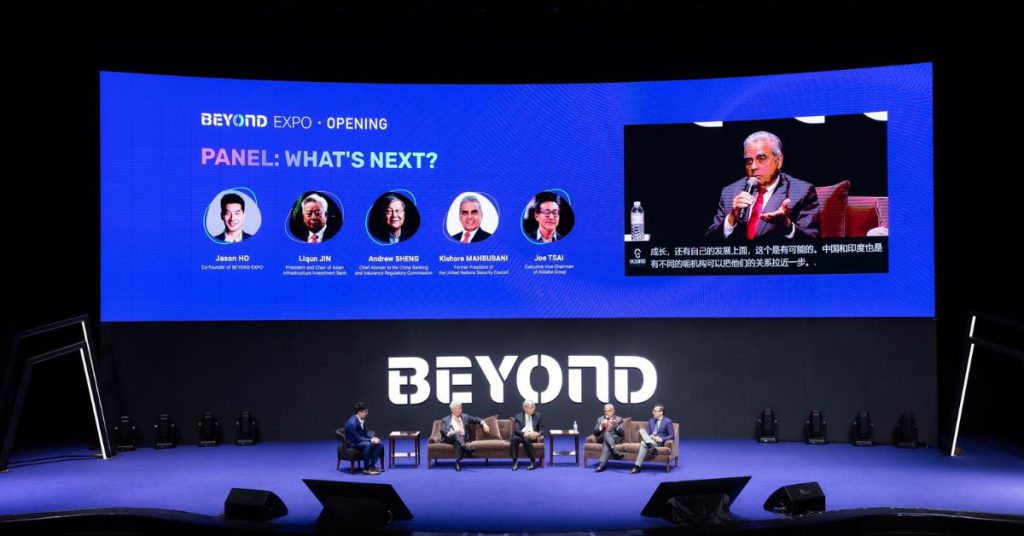
For example, the consumer tech summit will explore:
- Travel technology like new energy vehicles, autonomous driving, and passenger drones
- Smart home and real estate technology like smart home appliances and pet tech
- Fashion technology like alternative and new materials
- Financial technology in the realm of mobile payments and digital financial services
- Sports and entertainment technology such as home fitness systems, smart sports platforms, gaming tech, and more
Then there are the forums led by world-renowned experts in their fields such as Fujifilm, Sony, and Shiseido, who will highlight global tech trends they’re keeping up with and collaboration opportunities.

Not to be missed is also the two-day Founder Forum, with speakers consisting of over 12 unicorn entrepreneurs as well as trailblazers such as Nothing’s Carl Pei, Siu Rui Quek of Carousell, and our very own Eric Cheng of Carsome.

And while you might not think much of the Fund at First Pitch sessions (how different can pitch sessions be, after all?), BEYOND Expo has injected Macao’s special touch into this too.
Doing away with conventional demo days, these pitch sessions emulate a game of roulette.
An entrepreneur will spin the roulette wheel and get a time ranging between 60 to 180 seconds for their pitch, and any hooked investors will put forward their chips to stake their interest.
We don’t know about you, but this concept alone has us ready and placing bets for the show.
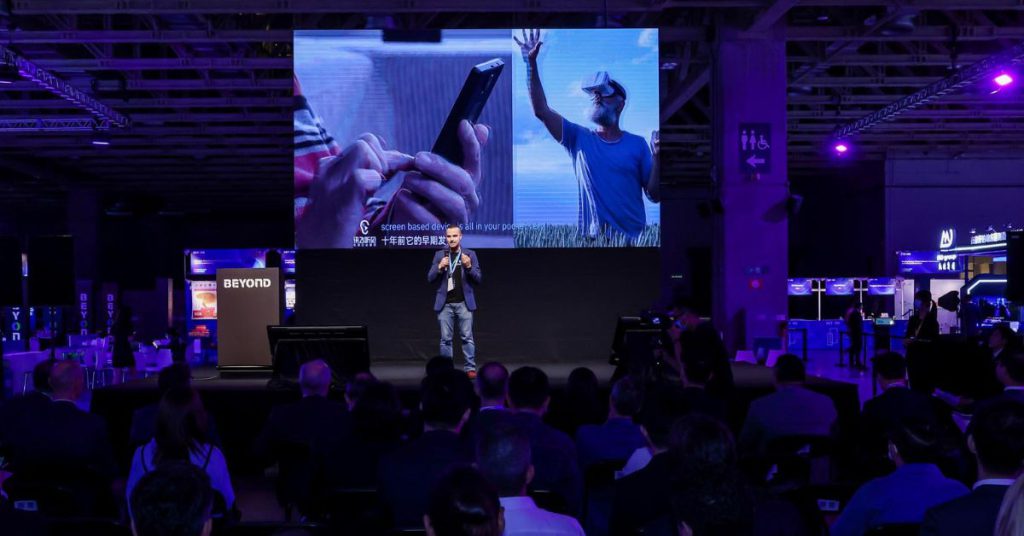
Last but not least, for the leaders who like cutting a little loose at times, rest assured that BEYOND Expo does not forget Macao’s roots in entertainment.
From parties to a gala dinner and golf tournament, you’ll get plenty of chances to mingle with changemakers in more relaxed settings.

2. You’ll see tech innovations that’ll have you saying, “Wow, wish we had those already!”
Last year, BEYOND Expo showed off a two-seater flying car (with hopes of being brought to market as early as 2025!), a robot minibus for eight pax, an autonomous bus that’s already being used in schools and tourist spots in China, and more.
These are concepts that have been teased for years, and we didn’t expect them to be this close to being market ready, let alone already being commercialised.
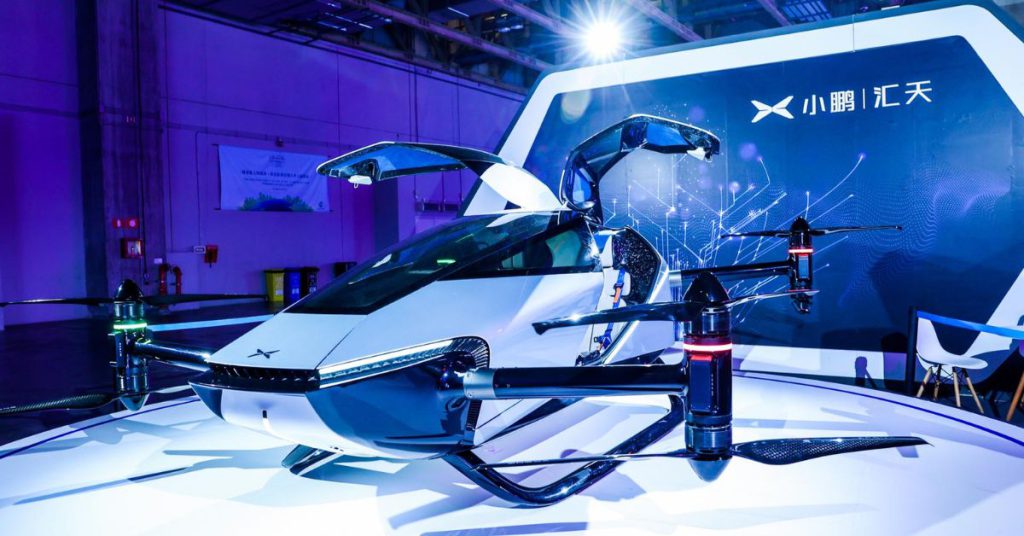
BEYOND Expo 2023 certainly proved us doubters wrong, and these technologies could very well be a thing of tomorrow, if the people behind the ideas get the right kind of support from such events.
For this year, we’re expecting to see even more exciting innovations being revealed to the public, and perhaps even announcements about their roll-out plans.
3. Global brands and businesses will be exhibiting at BEYOND Expo, from rising stars to established household names.
If you’ve got a business you look up to as a founder, you might just find their booth at BEYOND Expo 2024.

See how smaller businesses are making their mark on the global arena, and how even big brands aren’t resting on their laurels.
Everyone there will be showcasing some sort of innovation, and you can observe firsthand from your peers how to appeal to an international audience.
Perhaps we might even spot you exhibiting at next year’s BEYOND Expo!
4. You don’t have to be in the disruptive tech scene to be there, there’s lots to learn even from Macao’s non-tech SMEs.
At The Macao Showcase in 2023, we saw how Macao uplifts its SMEs from various sectors, seamlessly making them a part of the region’s overall appeal.
Even if your own business isn’t necessarily one that leverages the sexiest tech or draws in big funding rounds, we believe that BEYOND Expo will show how even small businesses can have global appeal.
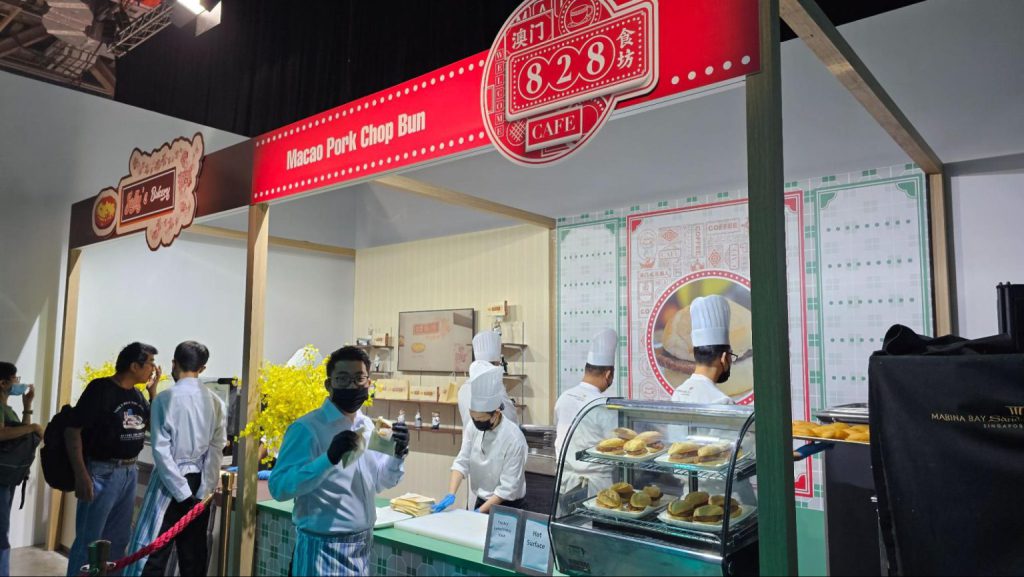
Your stories deserve to be told too, and seeing how Macao’s smaller SMEs manage to stand their ground amidst household names could inspire you to have more confidence and ambition.
5. Your entry ticket to BEYOND Expo 2024 is free!
This year, Vulcan Post is honoured to be a media partner of BEYOND Expo, and we have a total of 10 tickets to give away.
Use the code “BEYOND_Vulcan” at checkout, and register by scanning the QR code in the picture below or register yourself here: https://www.beyondexpo.com/registration/

With your entry covered, all that’s left is to plan your itinerary for Macao, and be sure to allocate some leisure time because it’s not called the entertainment capital of Asia for no good reason.
BEYOND Expo itself will be held at the Venetian Macao, a gorgeous luxury hotel, but you won’t want to miss other iconic and historic sights such as the Ruins of St. Paul’s, Senado Square, Taipa Village, and the City of Dreams.

So, will you be one of the 20,000+ attendees at BEYOND Expo 2024?
Vulcan Post is an official media partner of BEYOND Expo 2024.
- Learn more about BEYOND Expo 2024 here.
Also Read: 3 GenAI use cases with the potential to take off in M’sia, based on global examples
Featured Image Credit: BEYOND Expo